Hey There!
I'm Reina
I am a full-time traveling registered nurse, fitness enthusiast, and nutrition expert. Every morning I wake up intending to bring awareness of the importance of health and spiritual wellness, especially to the traveling community. At Messy Bun Traveler, we promote travel that allows the traveler to either kick-start, maintain, or enhance a healthy lifestyle. So whether you're someone who travels for business, travels for pleasure, or new to travel and looking for health advice while on the road, this blog is for you!
inspiration
Categories:
health
destinations
fitness
resources
wellness
Privacy & Disclosure
The Messy Bun Traveler is designed to bring you fun stories, destination guides, and healthy travel advice. To help cover the cost of running this site, all posts are sprinkled with hand-selected affiliate links. When you click on one of these links and make a purchase, I will earn a small commission at no additional cost to you. I only accept affiliate links and paid advertisements from brands I believe in, trust and use personally. Thank you for your continued support!
Natural Foods & Essential Oils to Help Repel Mosquitoes
July 26, 2019
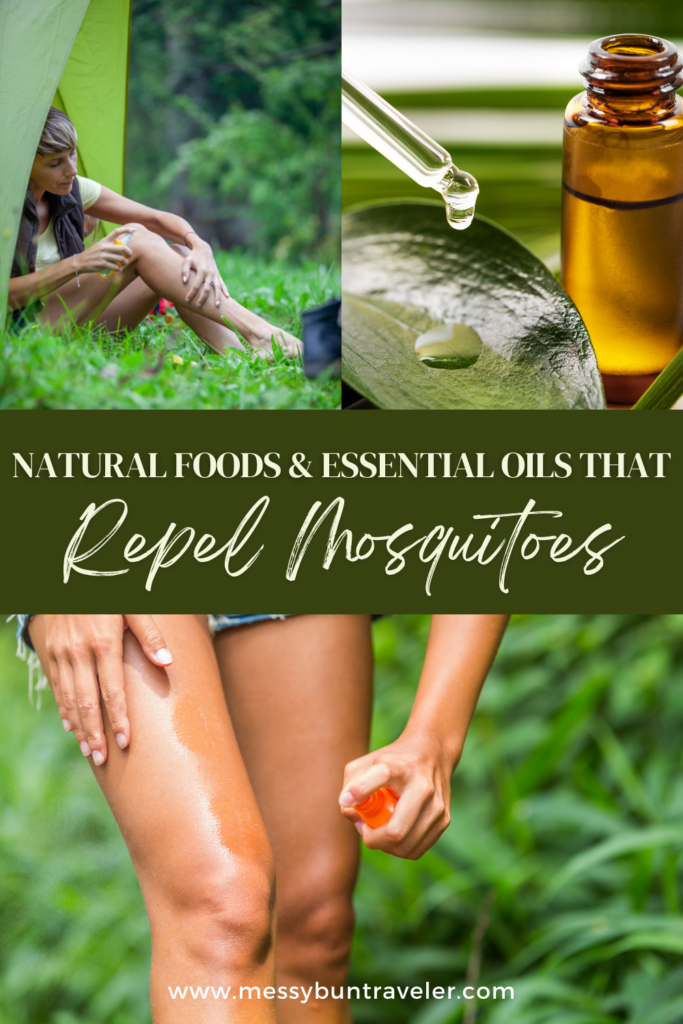
Summer is the perfect time to enjoy the outdoors. As much as we love spending time outside during the warm weather, there’s one thing that can ruin a good time: mosquitoes.
Have you ever asked these questions:
- What can I eat to repel mosquitoes?
- What smells do mosquitoes hate to keep them away?
While most people know that using bug spray is the best way to avoid getting bitten, did you know that what you eat may also help keep these pesky critters at bay? In this post, we’ll give you a list of five foods that will help keep mosquitoes away.
I was inspired to write this post after visiting my husband’s family in Wisconsin last weekend. It was a huge family outdoor BBQ to celebrate all the June and July birthdays in the family. One thing I instantly noticed; was how PREVALENT the mosquitoes are in the summer!
As soon as I stepped outside, the mosquitoes were drawn to me like a fat kid is drawn to cake.
And just like that—after a few hours of being outdoors, I was COVERED in itchy, painful mosquito bites. Mosquitoes are just the worst!
I looked back on previous trips abroad when I was also attacked this bad.
The Philippines. Vietnam. Thailand. Cambodia. Spain. Even camping up in the mountains by my hometown.
Mosquitoes are everywhere—ESPECIALLY while traveling.
And while summertime is the perfect time to take a vacation, it’s extremely important to protect yourself from mosquito bites and mosquito-borne diseases. These bugs—along with others like ticks and fleas, can spread diseases such as malaria, yellow fever, Zika, dengue, and Lyme. All these can have lasting consequences if you’re unlucky!
See also:
Summary
What can I eat to repel mosquitoes?
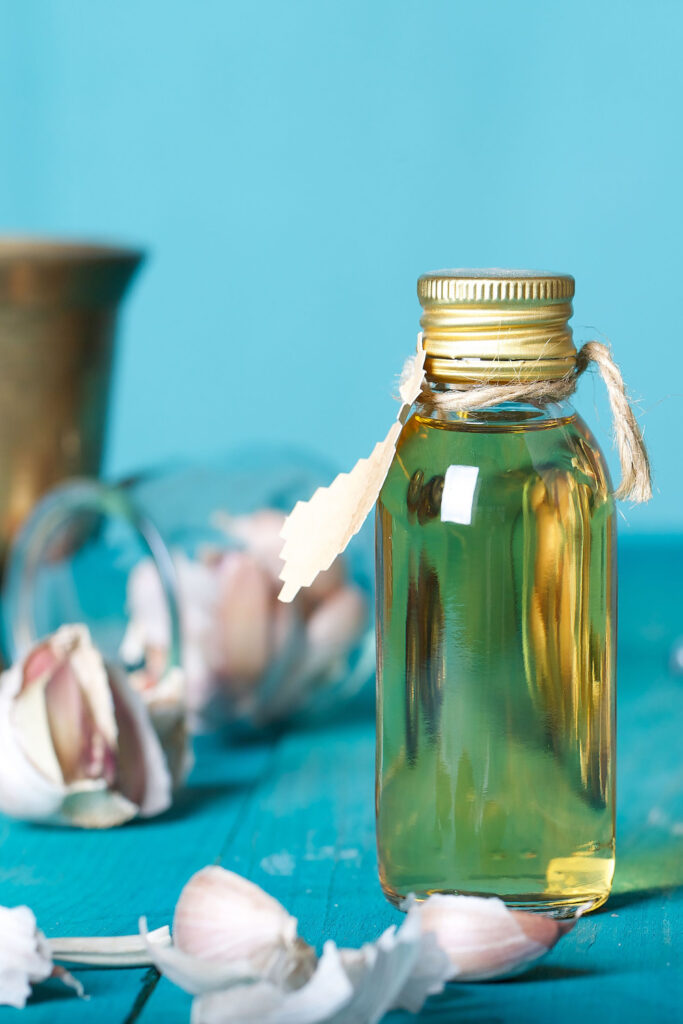
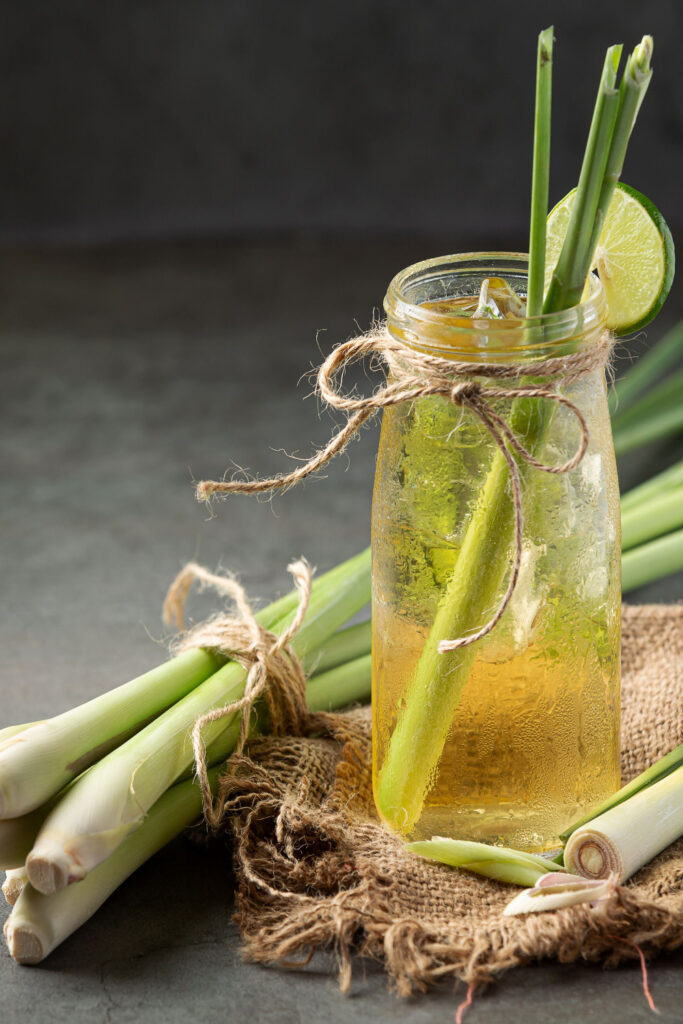
Garlic and Onions
Garlic and onions are two of the most well-known foods linked to repelling pesky mosquitoes. The reason for this is the pungent smell from a compound known as allicin, which is excreted through your pores after consumption. Allicin interferes with your natural scent, therefore helping to mask you from those persistent pests.
Apple Cider Vinegar
Apple cider vinegar has been a commonly used natural mosquito deterrent for many years. Like most other mosquito-repelling foods, apple cider works by altering your body’s scent. This makes you less appealing to those pesky mosquitoes.
Lemongrass
With lemongrass, you can apply it directly to the skin or cook it up in a delicious Thai soup or curry!
Chili Peppers
Spicy chili peppers contain the chemical capsaicin, which acts as an irritant to many bugs, including mosquitoes. Capsaicin is what gives spicy food that burning sensation when you consume it and, in theory, does the same thing to mosquitoes when they smell it. So, they stay clear when you eat spicy food.
Peppermint
For us, the taste of peppermint is refreshing and clean. But to mosquitoes, it’s quite the opposite. Consuming peppermint in mints and gum can help repel mosquitoes.
What smells do mosquitoes hate?

If you’re an essential oils fan, you may be more inclined to use essential oil scents to repel mosquitoes. If you’re doing things like taking a hike, hanging out in your backyard, or taking a camping trip, natural repellents might be a better option.
Here is a list of natural scents that are known to help repel mosquitoes:
Eucalyptus oil
A well-known natural repellent and the main ingredient in many natural mosquito repellent products.
Lavender
While pleasant for us humans, the smell of lavender is hated by many bugs, including mosquitoes.
Citronella
A very common natural and effective mosquito repellent. This essential oil is also very common in many natural mosquito repellents like this one.
Peppermint
Like eating peppermint, the essential oil can be nauseating to mosquitoes as well.
Lemongrass
Sometimes you may find citronella and lemongrass used interchangeably, but as a matter of fact, they are two different plants. While they’re two entirely different oils, they both do the same thing- repel mosquitoes!
While these foods and essential oil scents are popular natural anecdotes for repelling mosquitoes, scientific research studies have yet to find any clinical evidence that supports these claims.
Other (Scientifically Proven) Ways to Repel Mosquitoes
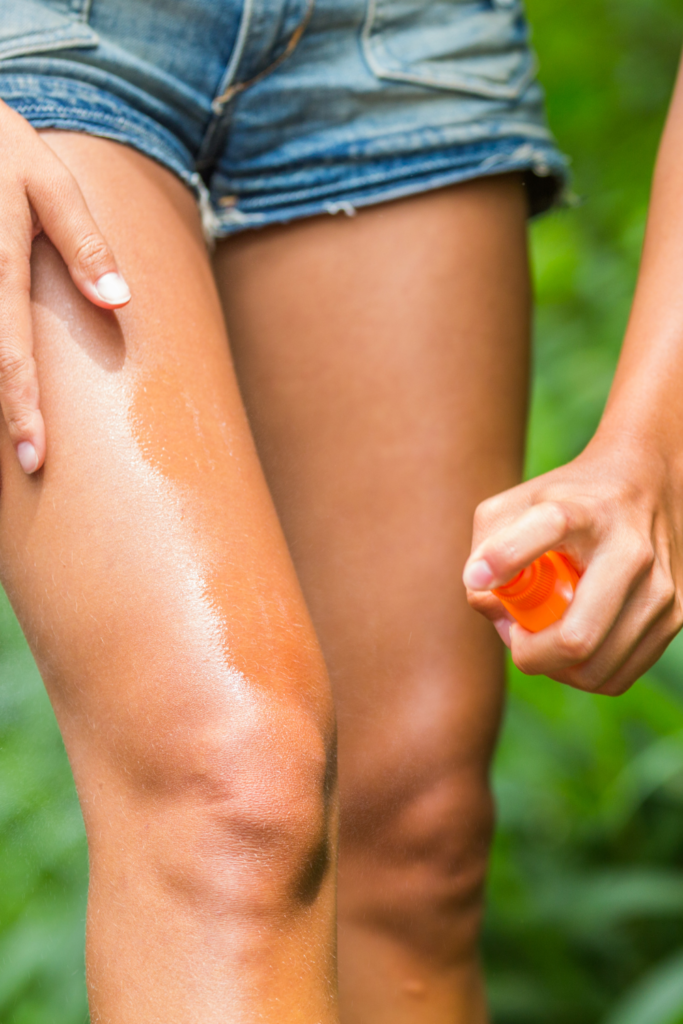
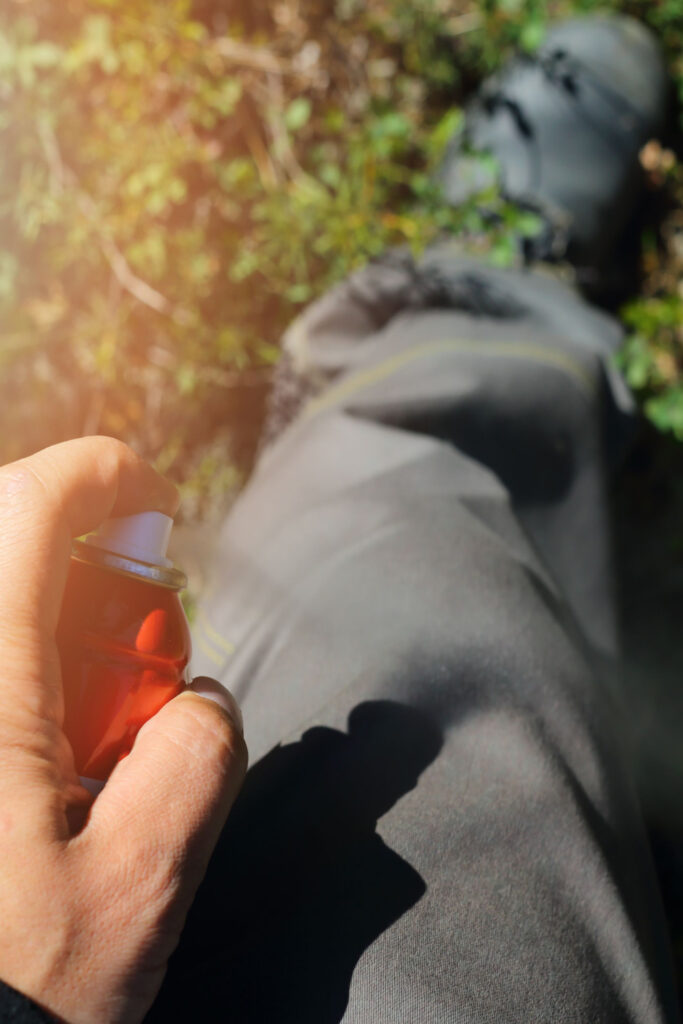
If you’re looking for science-backed methods to repel mosquitoes, here are four ways to avoid mosquitos during your travels.
*obtained from CDC: Center of Disease Control and Prevention.
Use the proper insect repellent
There are many insect repellents out there that claim to do the job, but you want to make sure you’re using one that actually works.
Active ingredients that are proven to repel mosquitoes are DEET, picaridin, IR3535, oil of lemon eucalyptus, para-menthane-diol, or 2-undecanone. If you’re using bug spray or any other type of insect repellent, make sure it contains at least one of these active ingredients.
If you’re also applying sunscreen, apply the sunscreen FIRST. Then the spray.
Wear protective clothing
If you know you’re traveling to a highly mosquito-populated area, make sure to pack long sleeves and pants in your bag (even if the weather is supposed to be warm).
On a hike Dustin and I took in Hawaii, it was HOT and humid. We didn’t even consider wearing mosquito repellent at the time. By the end of the hike, we were both COVERED in red, itchy mosquito bites. If I were to do it all over again, I would have worn long pants instead of shorts, BUG SPRAY, and reapplied at least once. Remember that mosquitoes thrive in hot, humid climates.
Keep in mind that mosquitoes can bite through fabric if you’re wearing thin material!
Treat your clothing and gear with Permethrin
Permethrin is an insecticide for clothing and gear such as boots, tents, backpacks, etc. you can either buy pre-treated clothing or buy permethrin and just treat your own.
Avoid mosquitoes if possible
It’s best to choose hotel rooms or other accommodations that are air-conditioned (mosquitoes don’t like cold air) and closed off so no mosquitoes can get inside. It’s best to have windows and door screens with no patches/holes as well.
If you’re tent sleeping or staying in an accommodation that doesn’t have this luxury, sleep under a bed net that can be tucked under the mattress.
Also, steer clear of standing water- this is where mosquitoes tend to breed and swarm in large packs.
How to soothe itchy mosquito bites if you do get them
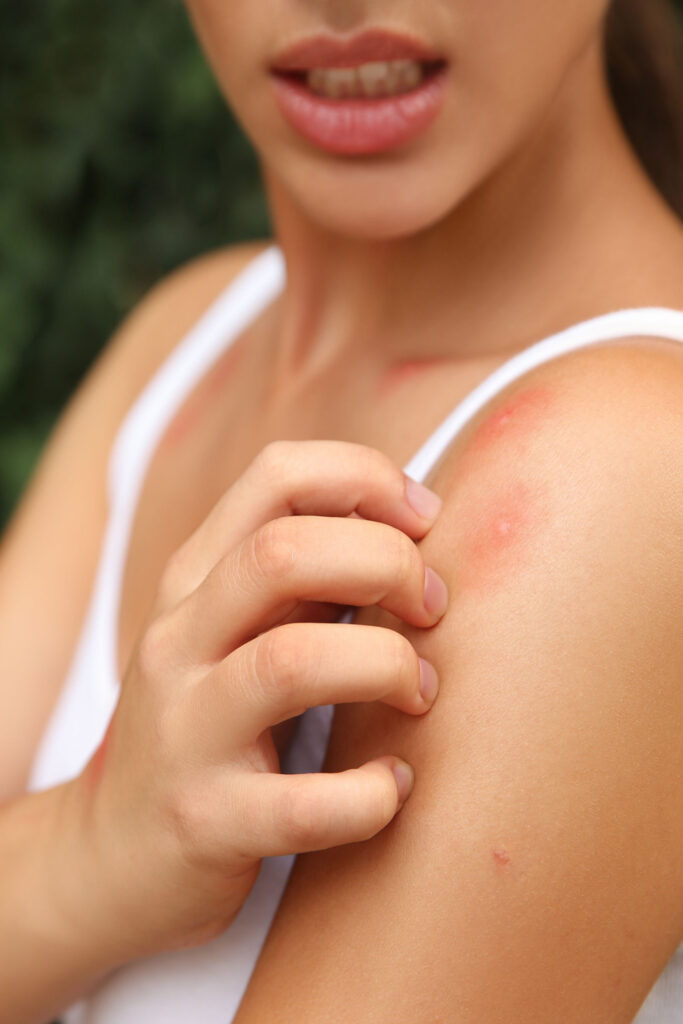
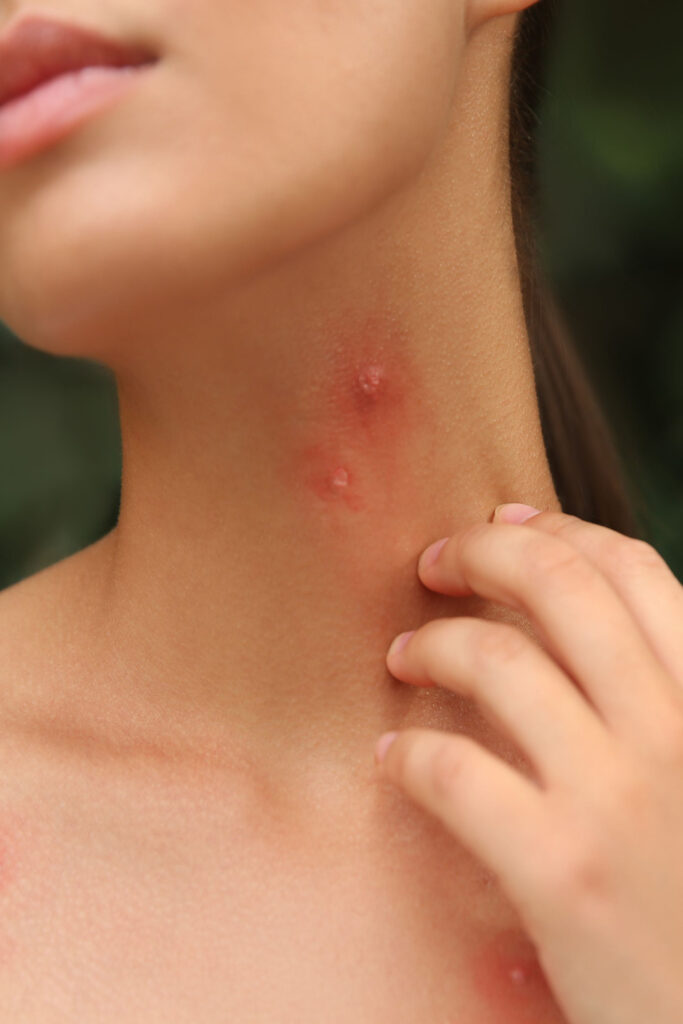
Despite all these precautions, if you’re unfortunate enough to get bit by a pesky, persistent mosquito there are some remedies to soothing those annoying bites.
Don’t scratch them
Believe it or not, it may feel like a relief at first to scratch that itch but scratching only makes it itch worse! Plus, you’ll damage the skin causing possible scaring.
Hydrocortisone cream
This steroid cream will help counteract the effect of the histamines and reduce the swelling, which should give you some relief from the mosquito bite itch.
See also:
Ice packs
Naturally helps reduce swelling from the bites.
Take an antihistamine
You can take an over-the-counter medication like Benadryl to help reduce swelling and itching from mosquito bites.
Use some tea tree oil
Antiseptic properties in tea tree oil help it treat a variety of skin-related symptoms, including mosquito bites. Dab a little essential oil onto a cotton swab and rub it on the affected area. Lavender and peppermint oils also work well.
Mosquitoes are pesky creatures that can ruin a good time outdoors. By understanding what you can eat to repel mosquitoes and what smells they hate, you can take some simple steps to avoid mosquito bites this summer. It’s also helpful to know about scientifically proven methods of repelling these bugs so you can be best prepared!
Join my newsletter
* We will never share your details with any third party